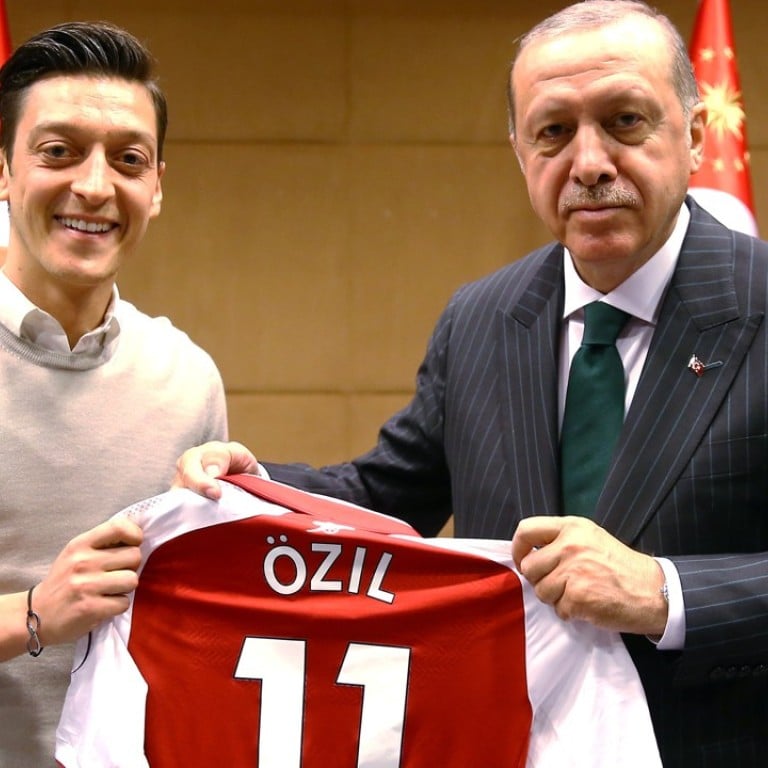
Mesut Ozil’s Erdogan furore: Germany star quits national team over ‘racism’ following picture with Turkish president
Mesut Ozil, who has Turkish roots, says German football officials, fans and media have mistreated him after photograph with President Recep Tayyip Erdogan
Mesut Ozil has quit the German national team, claiming he has been the victim of “racism” in the criticism he has faced since posing for a picture with Turkish President Recep Tayyip Erdogan.
The Arsenal star posted a four-page statement on Twitter and Instagram on Sunday, announcing he would not be available for international selection going forward.
The 29-year-old, who has Turkish roots, had his loyalty to Germany’s squad questioned by German media and fans when he posed for the controversial photograph ahead of the World Cup in Russia.
“It is with a heavy heart and after much consideration that because of recent events, I will no longer be playing for Germany at international level whilst I have this feeling of racism and disrespect,” he said.
“I used to wear the German shirt with such pride and excitement, but now I don’t. This decision has been extremely difficult to make because I have always given everything for my teammates, the coaching staff and the good people of Germany.”
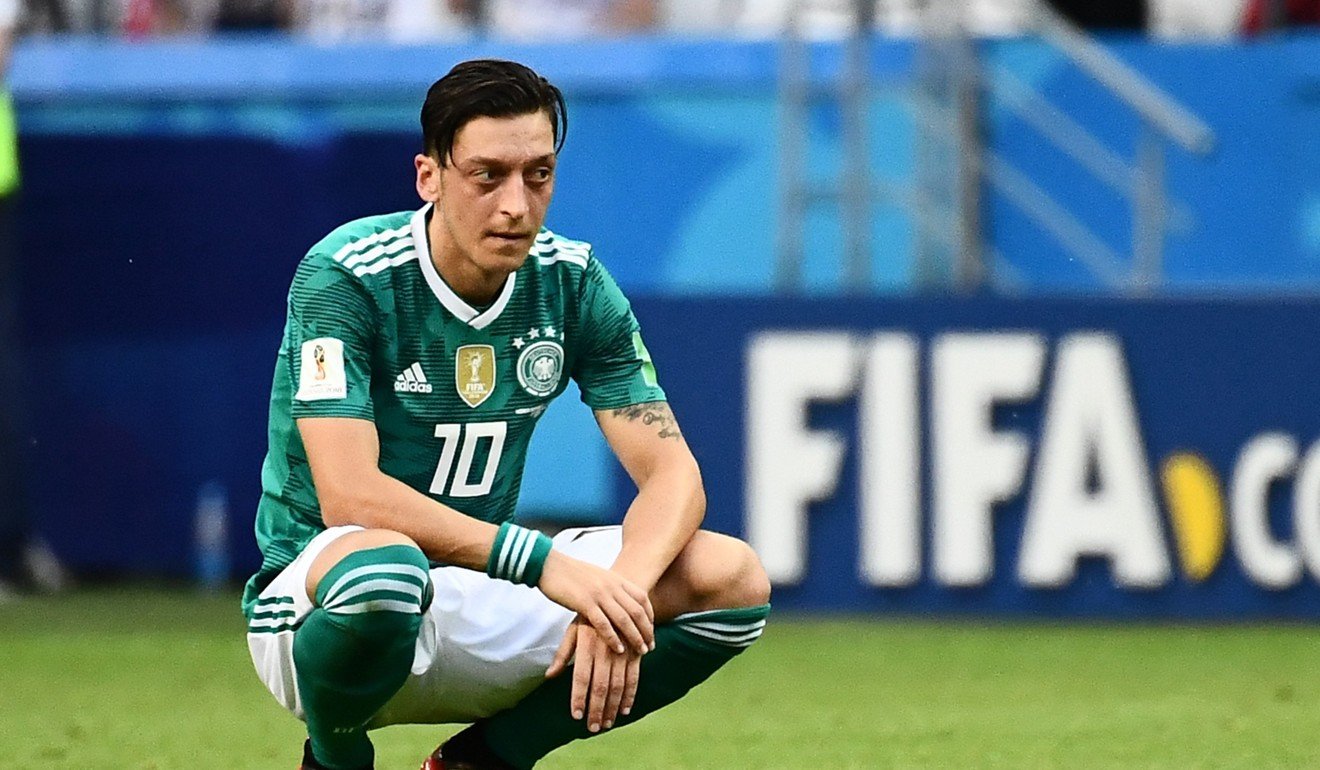
Ozil blamed the German Football Federation (DFB) for failing to stand up for him, and singled out DFB President Richard Grindel.
Grindel and Germany manager Joachim Low asked Ozil to give a “joint statement to end all the talk and set the record straight” regarding the Erdogan picture, according to the forward.
“Whilst I attempted to explain to Grindel my heritage, ancestry and therefore reasoning behind the photo, he was far more interested in speaking about his own political views and belittling my opinion,” Ozil said.
Ozil added: “When high-ranking DFB officials treat me as they did, disrespect my Turkish roots and selfishly turn me into political propaganda, then enough is enough.
“This is not why I play football, and I will not sit back and do nothing about it. Racism should never be accepted.”
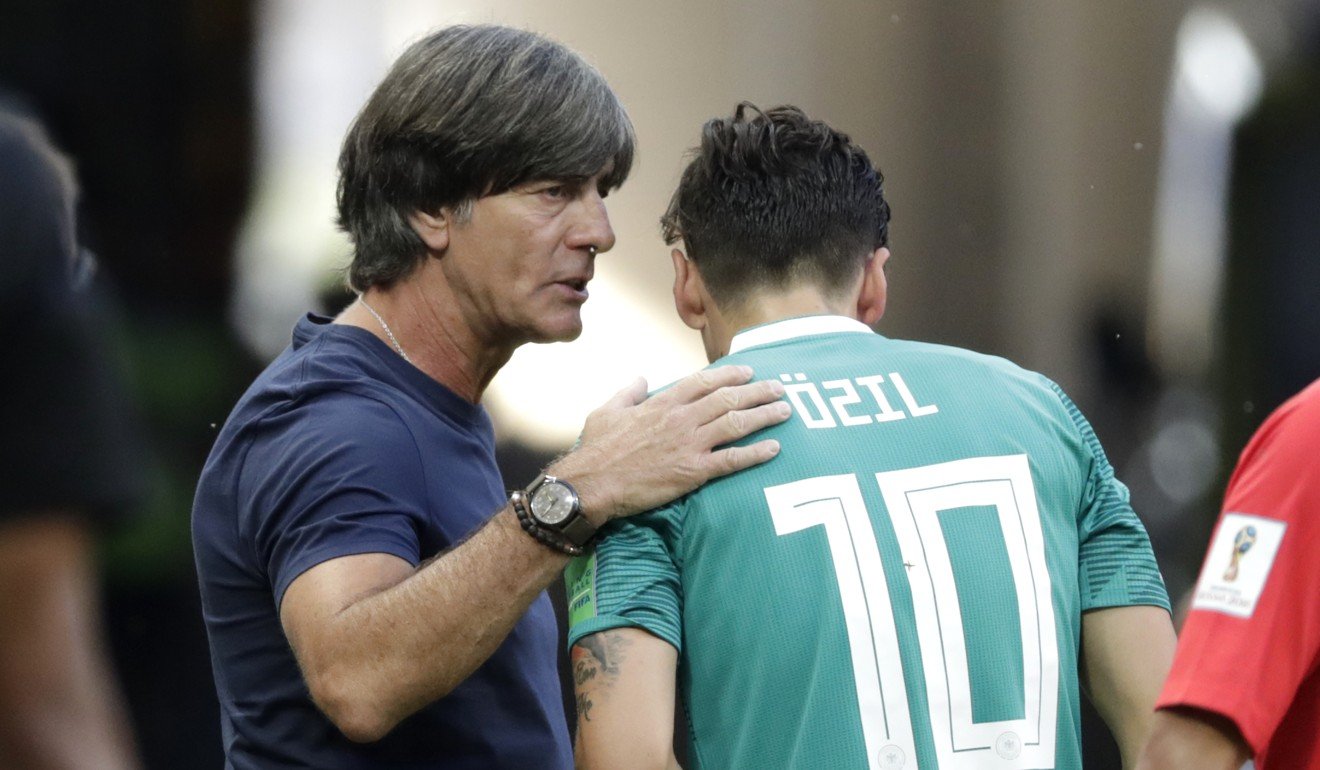
Germany suffered a shock group-stage exit at Russia 2018, with the defending champions losing to Mexico and South Korea.
“I will no longer stand for being a scapegoat for his [Grindel’s] incompetence and inability to do his job properly,” Ozil said.
“In the eyes of Grindel and his supporters, I am German when we win, but I am an immigrant when we lose.”
Ozil accepted criticism for his performances on the pitch, but not when critics linked it to his ethnic background, calling it “right-wing propaganda”.
“If a newspaper or pundit finds fault in a game I play in, then I can accept this,” he said.
“But what I can’t accept are German media outlets repeatedly blaming my dual-heritage and a simple picture for a bad World Cup on behalf of an entire squad.
“This crosses a personal line that should never be crossed, as newspapers try to turn the nation of Germany against me.”
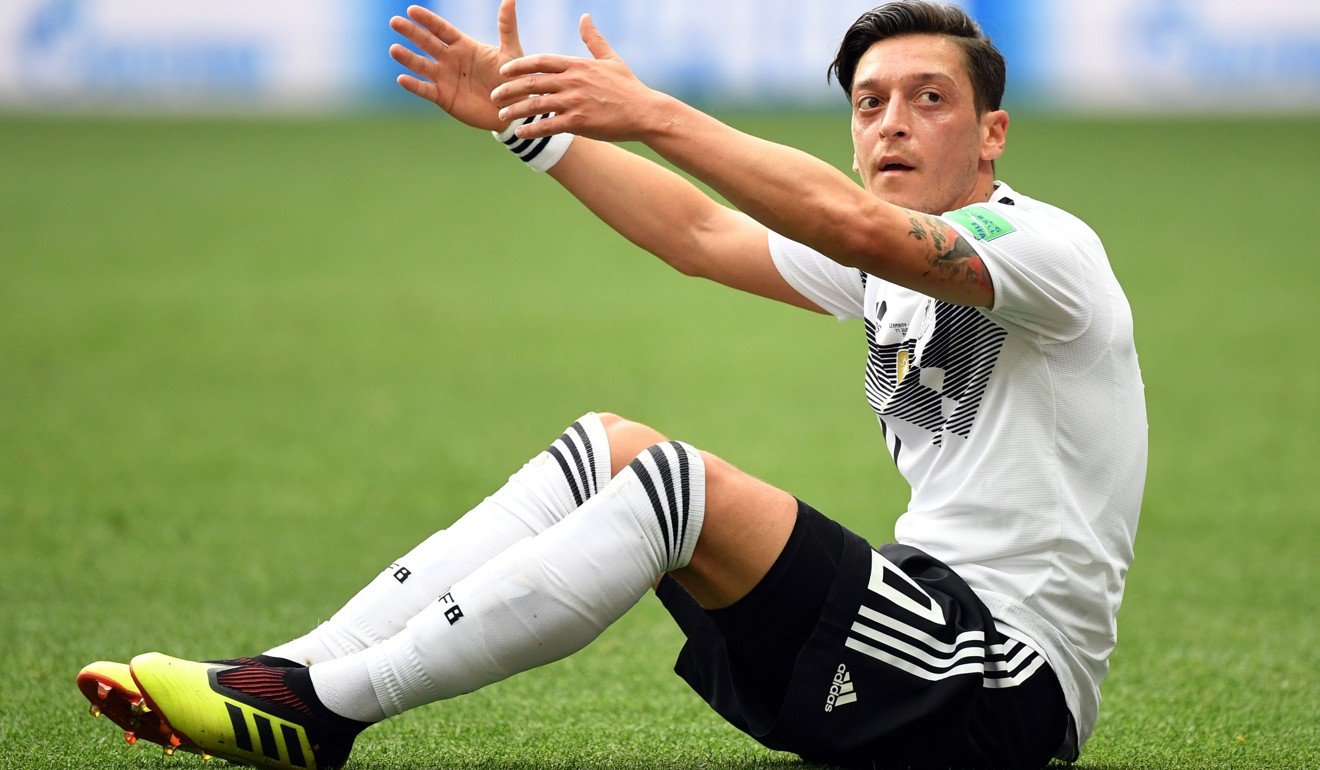
Ozil also listed profanity-laced public criticism he had received from a German politician and the assertion from Werner Steer, chief of German theatre, that he should “p*** off to Anatolia”.
“Using discrimination as a tool for political propaganda is something that should immediately result in the resignation of those disrespectful individuals,” Ozil said.
“These people have used my picture with President Erdogan as an opportunity to express their previously hidden racist tendencies, and this is dangerous for society.”
Ozil recounted racist abuse he had been subjected to by a German fan after Germany’s 2-1 win against Sweden in Russia. He and teammate Ilkay Gundogan, who had also posed for pictures with Erdogan at the meeting in London, were booed by their own supporters in pre-World Cup friendlies.
“I don’t want to even discuss the hate mail, threatening phone calls and comments on social media that my family and I have received,” he added.
“They all represent a Germany of the past, a Germany not open to new cultures and a Germany that I am not proud of. I am confident that many proud Germans who embrace an open society would agree with me.”
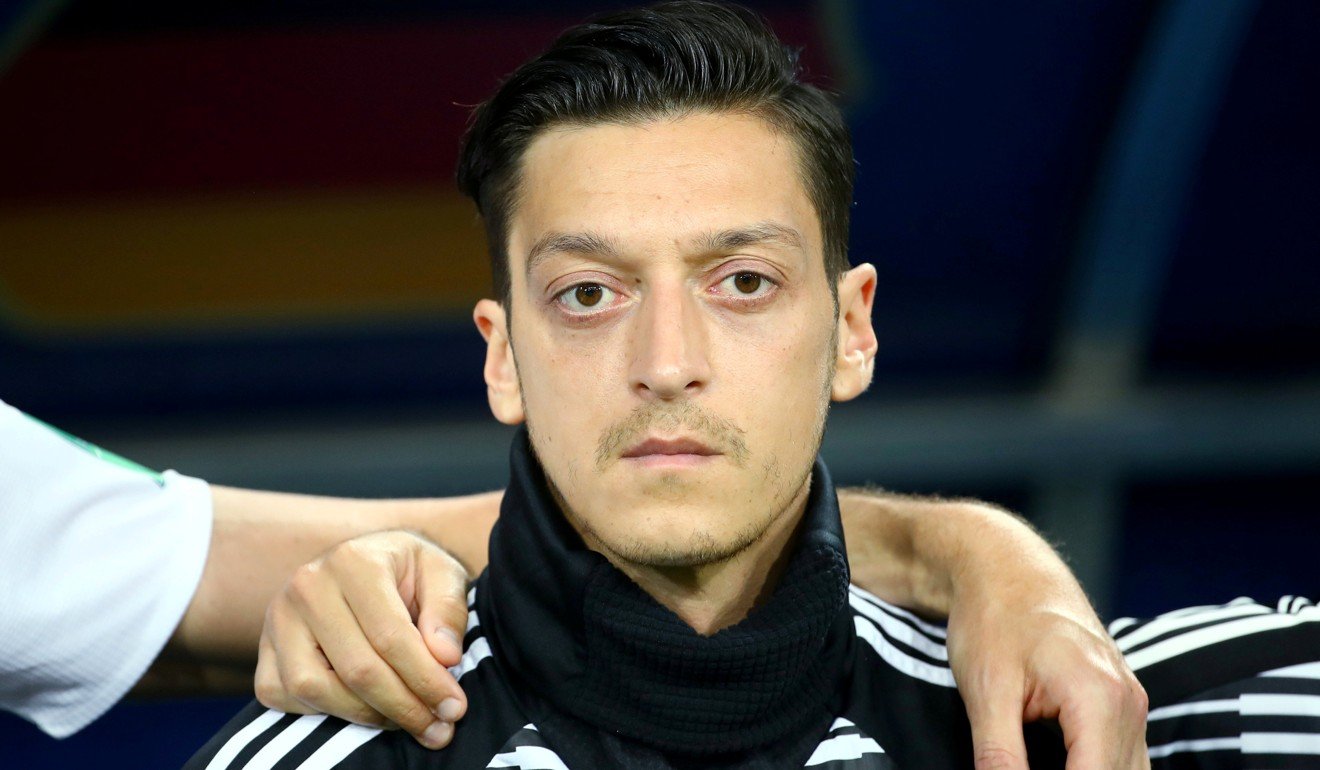
Germany legend Lothar Matthaeus had criticised Ozil for the Erdogan picture, but Ozil pointed out the former World Cup-winning captain “had met with another world leader a few days back and received almost no media criticism”, in reference to Russian President Vladimir Putin.
The picture with Erdogan, where he presented Erdogan with a signed shirt, was taken in May, soon before the president won re-election.
“It wasn’t about politics or elections, it was about me respecting the highest office of my family’s country,” Ozil said, insisting he has “two hearts, one German and one Turkish”.
“Like many people, my ancestry traces back to more than one country. Whilst I grew up in Germany, my family background has its roots firmly based in Turkey,” he said.
“My job is a football player and not a politician, and our meeting was not an endorsement of any policies,” Ozil added.
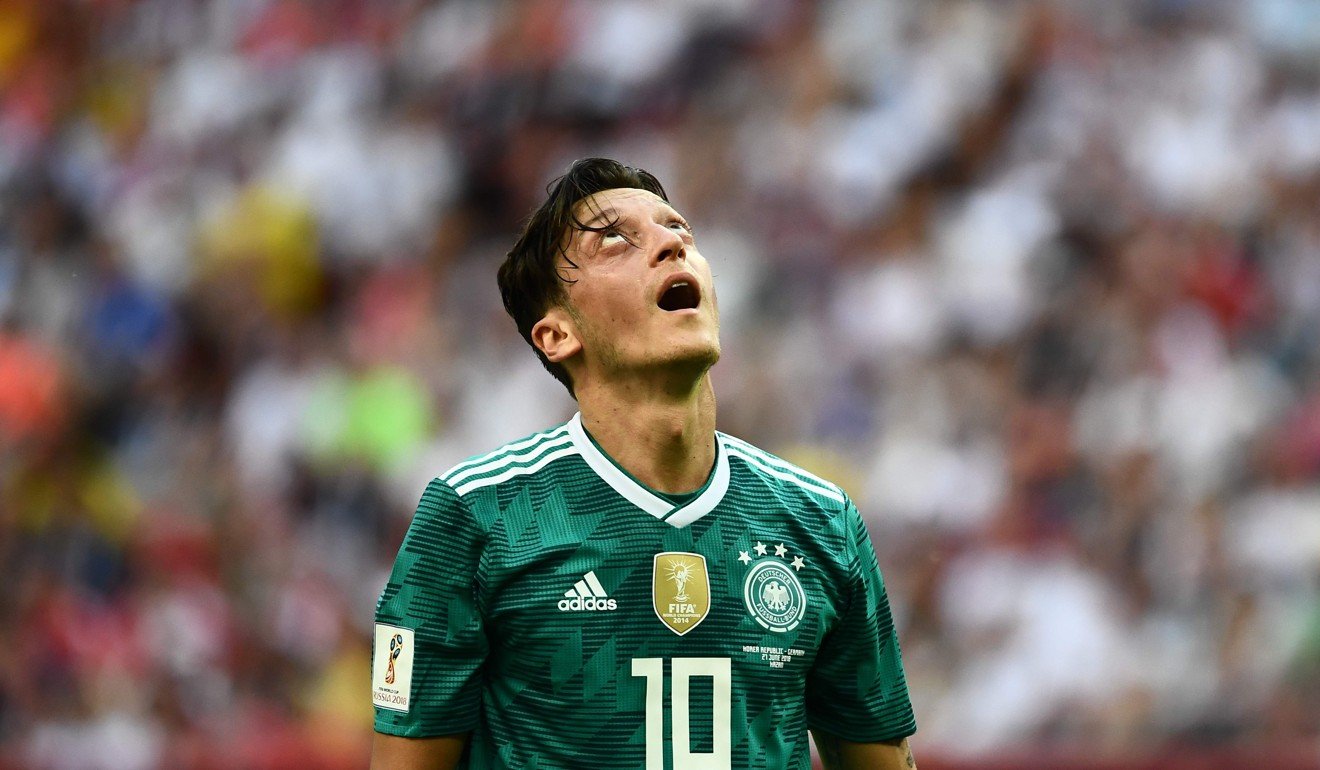
Ozil has made 92 appearances for Germany, scoring 23 goals. He was a star of the team that won the European Under-21 Championship in 2009, before the senior team’s triumph at the 2014 World Cup in Brazil. He was also part of the squad that finished third in 2010 in South Africa.
“I feel unwanted and think that what I have achieved since my international debut in 2009 has been forgotten,” he said.

